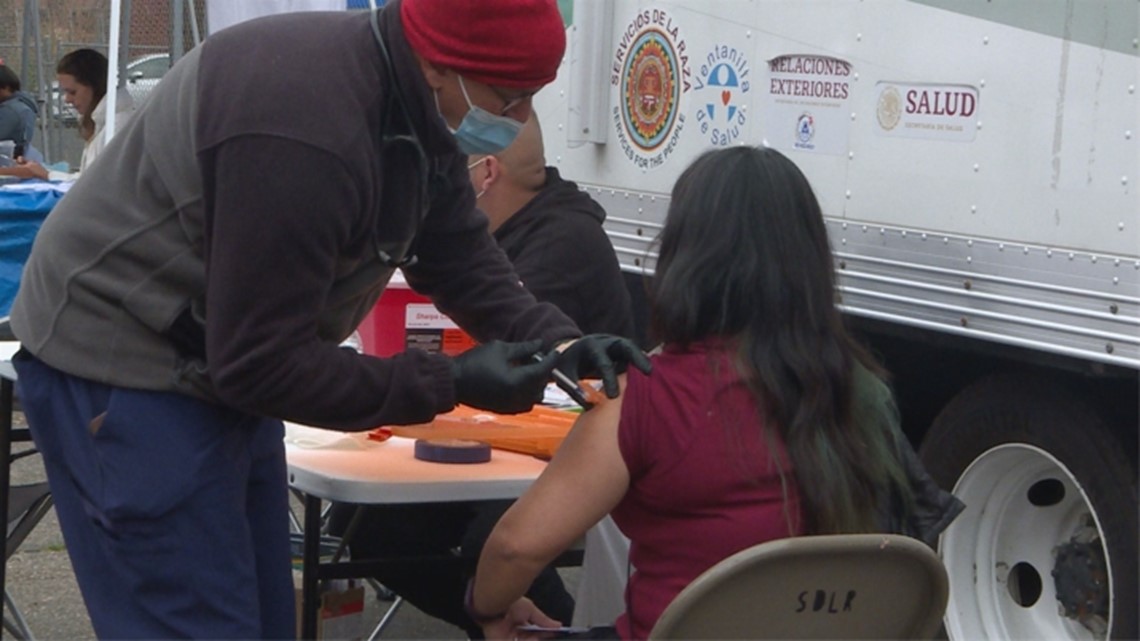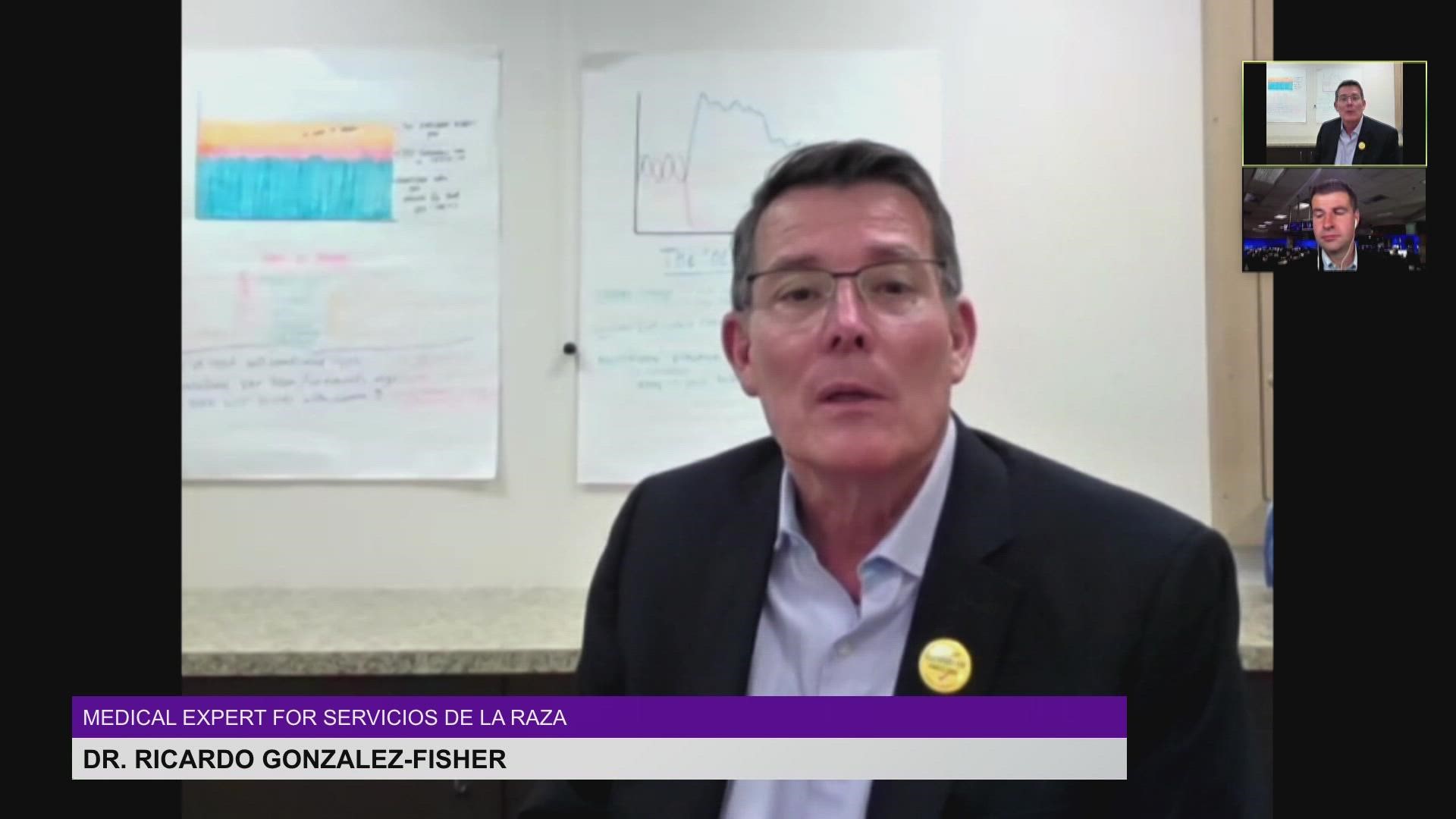DENVER —
When it comes to upper respiratory infections, Dr. Ricardo González-Fisher said it becomes difficult to distinguish whether a person has COVID-19, influenza, pneumonia, or strep throat because the ailments have many symptoms in common.
González-Fisher is a medical expert with Servicios de la Raza and joined 9NEWS+ anchor Chris Bianchi in this week's segment to discuss the different symptoms of respiratory infections. He also weighed in on the latest FDA restrictions on Johnson & Johnson's COVID-19 vaccine.
According to Gonzalez-Fisher, these are some of the questions that people should ask to help them figure out if they have COVID or something else:
Note from the editor: Answers have been edited for clarity.
What is your temperature?
Gonzalez-Fisher said that strep throat, influenza, pneumonia and COVID-19 are infections that produce a fever. A common cold usually does not cause a fever. So, if there is no fever, he said the person most likely is experiencing a common cold.
However, people should keep in mind that symptoms of COVID-19 take time to appear, so a fever may take a few days to start. People start to feel bad before they have a fever, he added.
Gonzalez-Fisher emphasized that if there is any doubt, people should get tested.
Are you sore? Are you in pain?
If you have body aches, muscle pain, you are fatigued, maybe you’re falling into COVID-19, and it’s a great idea to get tested.
How fast are those symptoms coming?
If people were very well yesterday and today they feel as if they were hit by a train, most likely it is not COVID-19. It is some other infection because COVID symptoms come in slowly and gradually.
Do you have nausea?
Many people may have gastrointestinal problems, nausea and vomiting. They are not so common in COVID-19, so they have to think that it is perhaps influenza.
What type of cough do you have?
People who have strep, pneumonia, or the flu have a productive cough and produce phlegm, while people who have COVID-19 tend to have a dry cough. People need to remember that if they have had a dry cough for many days, which turns into a productive cough, they may be having a secondary infection which is pneumonia, and they may need to be tested for COVID.
How long have you had the illness?
If the illness lasted only seven days and went away, it was probably a common cold. Influenza, or the flu, lasts a little more than 10 days, but if it has been coming slowly and gradually, and has been increasing, then get tested because it could be COVID-19.
How well are the medications you take working?
If you take over-the-counter medications, the ones you usually take when you have a respiratory illness and it doesn't go away, then we are most likely talking about COVID. You have to get tested.
On Thursday, the Food and Drug Administration decided to restrict Johnson & Johnson's COVID-19 vaccine after taking another look at data on the risk of life-threatening blood clots.
The restrictions allow for the use of the J & J vaccine only in people 18 years of age or older, who specifically request this vaccine, or who have a formal contraindication to receiving another vaccine. Meaning they are allergic to Pfizer or Moderna components, González-Fisher said.
According to Gonzalez-Fisher, the risk of complications from the Johnson & Johnson vaccine "is very low, but very severe."
"More than 18 million Johnson & Johnson vaccines have been applied, and what is registered are 60 cases. Sixty cases in 18 million vaccines is not many but it is something that happens. Unfortunately, there are nine people who have died with this circumstance," Gonzalez-Fisher said.
González-Fisher pointed out that people who received the Johnson & Johnson vaccine will not develop complications in the future.
"This is something that happens in the first two or three weeks after the vaccine," he added. "It’s not going to stay there and then give you the complication years or months later."
Servicios De La Raza, the state's largest nonprofit serving Latinos, will continue to offer their vaccination clinic every Tuesday from 4-8 p.m. at the organization, which is located at 3131 W. 14th Ave.
On Thursday and Friday mornings, they will also hold mobile clinics at the Mexican consulate located at 5350 Leetsdale Dr. #100. from 9 a.m. to 1 p.m.
No appointments are necessary and no form of identification, social security number or medical insurance is required.


VIDEOS SUGERIDOS: Coronavirus COVID-19

